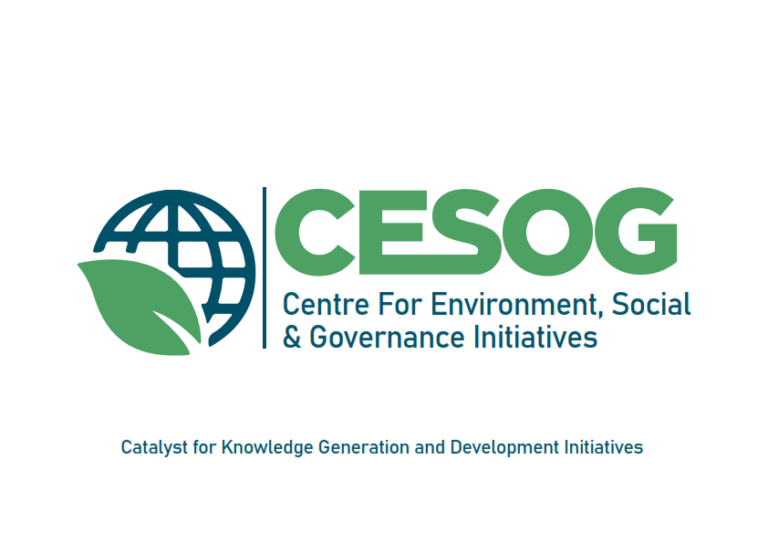
Center for Environment Social and Governance Initiative (CESoG)
Joined May 2023
To induce the importance of ESG for all projects and development interventions through Research, monitoring and evaluation, advocacy, capacity building, participatory project development approaches.
CENTRE FOR ENVIRONMENT, SOCIAL AND GOVERNANCE INITIATIVES (CESOG)
Slogan is “Catalyst for Knowledge Generation and Development Initiatives”
CESoG’s mission is to induce the importance of ESG for all projects and development interventions through Research, monitoring and evaluation, advocacy, capacity building, participatory project development approaches, partnership programmes and networking.
CESOG formally Rural Environmental Care Association (RECA) since 2001 uses a broad range of ESG strategies which are people-driven, most of which enable a high degree of participation and interactive, experiential learning. CESOG seek always to adapt and experiment with each unique set of circumstances, combining and drawing selectively on a range of tools and approaches as each process unfolds.
We are committed as an organization to realizing a proud and prosperous future for Africa, building on its own history and indigenous systems address environment social and governance issues. We seek to work with others to find a path that celebrates our strengths, and critically engages with our weaknesses.
Internally, we seek to work with our own change too as ESG development practitioners, as colleagues and team members, and as an organization as a whole. We believe that in any encounter we have with partners and clients we are all affected by our work together and we seek to make this as positive an experience as possible for each person. CESOG organizational structure, consist of Board of Directors, an Executive Director, Programmes Coordinator, Field Facilitators and team members. The Board is ultimately responsible for the running of the organization. The Executive Director has managerial responsibility for the organization and is accountable to Board of Directors for the work of the organization. The programme Coordinator also has the responsibility to coordinate projects and programmes and is accountable to the Executive Director.
